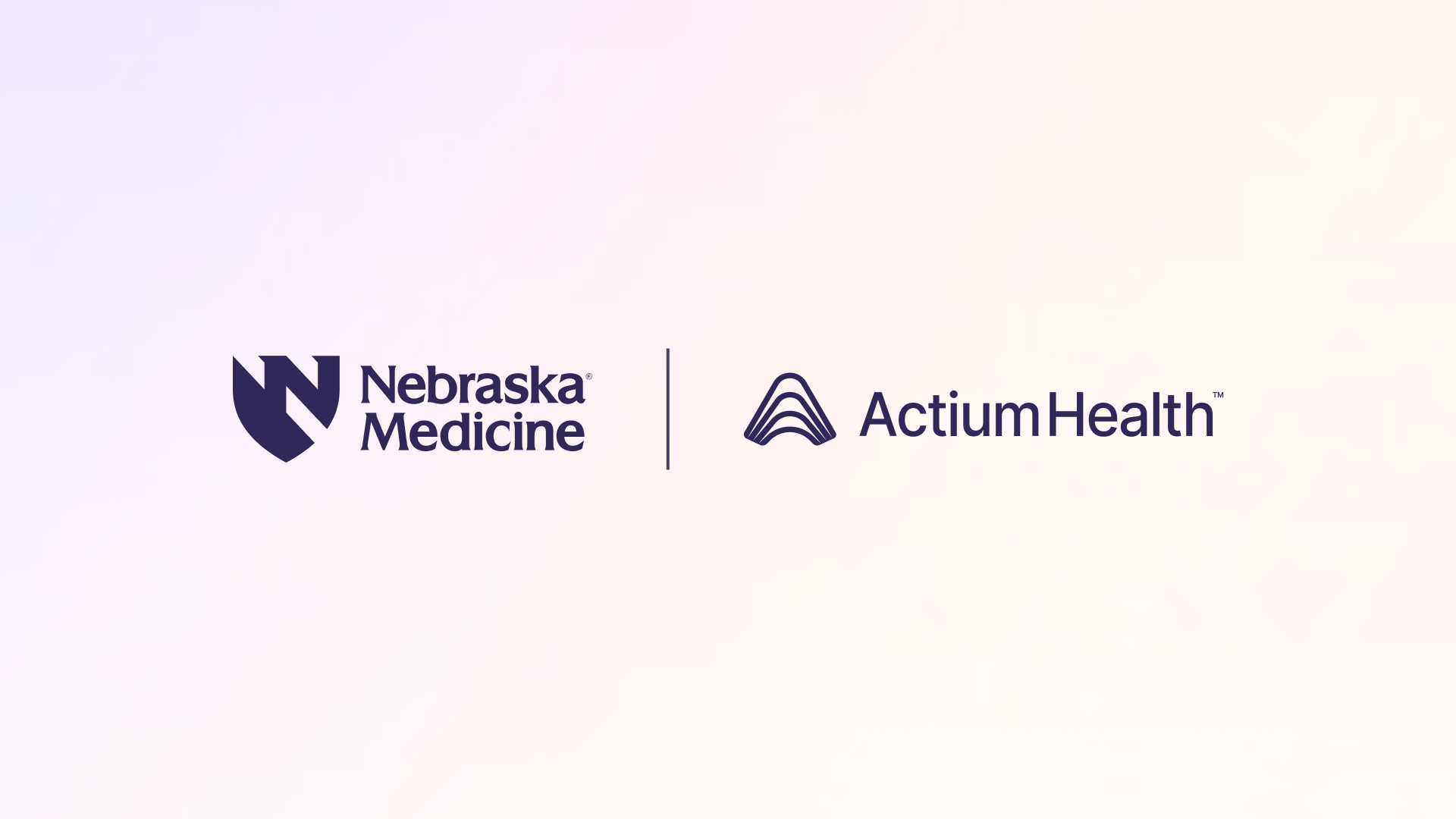SUMMARY OF SUCCESS
Achieving 70% call automation while preserving critical care coordination capabilities
Nebraska Medicine, a $2.5 billion academic medical system, successfully implemented ActiumHealth's AI-powered patient communication platform to address overwhelming call volumes and operational inefficiencies. The implementation delivered exceptional results: 70% call automation rate, 40% reduction in abandoned call volume to the Medical Communication Center, and immediate answer times for automated calls.
By automating routine inquiries, Nebraska Medicine freed its staff to focus on critical patient needs, including time-sensitive organ transplant coordination, while maintaining high patient satisfaction and service levels.
THE CHALLENGE
Routine patient calls interfering with priority workflows and life-saving operations
Nebraska Medicine faced mounting pressure in its patient access operations. Its agents were drowning in routine inquiries as they struggled to handle 2.5 million annual calls across multiple contact centers that support 1,200 affiliated providers and 70+ care locations.
Key Pain Points:
- Overwhelming routine call volume - much of it “switchboard work,” transferring patients to requested departments - preventing focus on critical patient needs
- Increased risk of missing critical calls, including time-sensitive organ transplant coordination (15-minute window requirement)
The situation became critical when routine calls began interfering with priority workflows, such as provider-to-provider communications and multi-organ transplant center operations, where Nebraska Medicine has just one hour from organ availability to complete the entire acceptance process – with the contact center having only 15 minutes to contact the patient and connect all parties.
THE SOLUTION
24/7 conversational AI delivering seamless escalation and priority routing
Nebraska Medicine partnered with ActiumHealth to implement AI agents as part of a DELTA project, the organization's highest-priority classification for strategic initiatives. This designation ensured executive backing and dedicated resources necessary for success across the entire health system.
ActiumHealth’s solution automated the most common patient inquiries while ensuring seamless escalation for complex cases. Conversational AI agents naturally handle follow-up questions and provide multi-language support, including the capability to switch from one language to another during calls. The system includes sophisticated emergency triage capabilities that automatically prioritizes urgent medical concerns, ensuring patients with critical needs receive immediate attention.
Key technical features include:
- 24/7 availability for patient self-service
- Seamless integration with existing telephony infrastructure
- Planned Epic EHR integration for advanced scheduling and prescription management functionality
- Priority routing for patient self-service
Implementation and Use Cases
Nebraska Medicine executed a strategic two-phase implementation approach that prioritized immediate operational wins while building infrastructure for long-term expansion.
- Phase 1: Intelligent Call Routing (Completed) The initial phase focused on high-volume, low-complexity tasks to demonstrate immediate value. AI agents now handle incoming calls to main hospital lines, providing automated department transfers and basic information requests across three main public-facing phone numbers. Real-time call monitoring capabilities allow continuous improvement of system performance.
- Phase 2: Epic Integration (In Progress) Building on Phase 1 success, the second phase will introduce direct scheduling capabilities for ambulatory clinics, prescription refill automation, and inpatient lookup functionality. The rollout is starting with family medicine, and diabetes and endocrinology teams, with expansion to all specialties planned by November 2025.
The implementation addresses several critical use cases that directly impact patient safety and operational efficiency.
Organ transplant coordination now features priority routing that ensures compliance with the critical 15-minute response window, while provider-to-provider calls receive immediate escalation. After-hours scheduling capabilities reduce appointment cancellations and no-shows, and emergency triage automatically recognizes urgent symptoms and immediately routes them to a nurse.
THE RESULT
Two-phase strategy ensuring immediate operational impact and comprehensive EHR integration
The implementation exceeded expectations, delivering dramatic improvements in both operational efficiency and patient experience across Nebraska Medicine's network.
Quantitative Impact:
- 70% of calls handled by AI automation
- 40% reduction in calls to the Medical Communication Center (from 13,000 to 8,000 weekly calls)
- Immediate answer time for all automated calls
- 40% reduction in total abandoned call volume
Qualitative Benefits: The transformation also contributed to fundamental improvements in staff experience and patient care quality. Staff stress and burnout were reduced through elimination of repetitive tasks, which allowed for enhanced focus on complex cases, including critical transplant coordination. The conversational AI improved patient satisfaction while providing 24/7 self-service access, which enabled faster urgent care routing and automatic priority queuing for medical emergencies.
Strategic Outcomes: The implementation freed up staff to focus on higher-value work like complex patient consultations, eliminated missed critical calls for time-sensitive procedures, and created a foundation for expanding the system to additional departments and use cases.
"The results we got actually exceeded our expectations. We saw a 40% reduction in calls that had to go to our hospital operators. We went from having about 13,000 calls a week to around 8,000 calls a week."
Pat Michael, Director of Patient Contact Services, Nebraska Medicine

